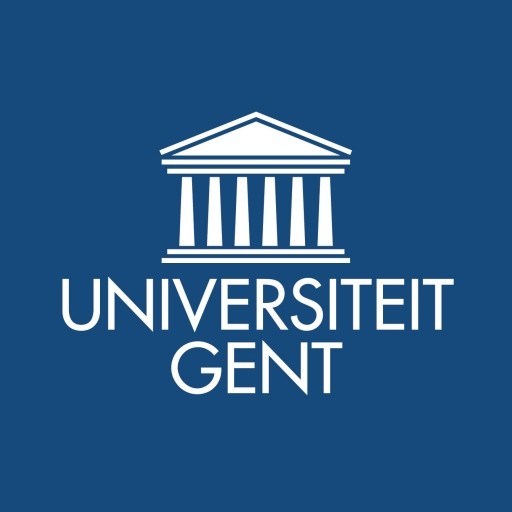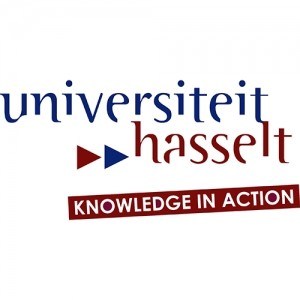Photos of university / #thefoundry_ugent
The Master of Science in Textile Engineering at Ghent University offers students a comprehensive and in-depth education in the science and technology of textile materials and processes. This programme is designed to prepare graduates for a successful career in the dynamic and innovative textile industry, focusing on advanced research, development, and application of textile materials. The curriculum combines theoretical knowledge with practical skills, enabling students to understand the complex properties of fibers, yarns, fabrics, and finished textile products. Students will explore various aspects such as textile design, production processes, sustainability, and quality control, equipping them with the tools needed to address current industry challenges. The programme emphasizes innovation and sustainability, encouraging students to develop eco-friendly and functional textile solutions. Through collaborations with industry partners and cutting-edge laboratories, students gain hands-on experience in optimizing textile processes and developing new products. The programme also fosters critical thinking, problem-solving, and research skills, preparing graduates for careers in industries such as fashion, automotive, medical textiles, technical textiles, and research institutions. With a strong international orientation, the programme attracts students from around the world, creating a vibrant and diverse academic environment. Graduates of this MSc programme are highly valued both within academia and in the professional industry, capable of contributing to technological advancements and sustainable practices in the textile sector. Overall, Ghent University's Textile Engineering master's programme provides a solid foundation in textile science, alongside opportunities for specialization and innovation, setting students on a path toward leadership roles in the global textile industry.
General Courses
- Industrial Information Systems
- Technical Textile Manufacturing Technology
- Instrumental Analysis
- High Technology Fibres
- Nanotechnology in the Textile Branch
- High-Performance Fibres
- Biomaterials
- Innovative Methods for the Product Development Process for Garments and Technical Applications in the Ready-Made Industry
- Mechanics of Textile Materials
- Textile Composite Structures for Impact Protection
- Composites
- Applied Textile Process Engineering
- Intelligent Textiles
- Application of Technical Textiles
- Biotechnology
- Advanced and Specialised Textile Processing - Dyeing and Finishing
- Functional Finishing
- Medical, Transportation and Construction Textiles
- Automation and Process Control
- Recycling
- Management, Logistics and Distribution
- Advanced and Specialised Textile Processing - Mechanical
- Supply Chain Management
- Garment Technology
- Ecological and Environmental Aspects
- Quality and Environmental Management
- Master's Dissertation
Requirements
- The course is open to students with at least a bachelor's degree
- Reference letters
- A TOEFL-TEST with a minimum score of 90 (internet-based). Test participants should specify the "institution code" 2643 for UGent and 0749 for KULeuven, so that the score can be sent directly to the university.
- An original 'academic test report form' (TRF) from IELTS with a minimum overall band score of 7.0.
- A certificate awarded by the Ghent University Language Centre confirming proficiency in English, CEF-level B2
- Certificate Practical English 5, Upper-Intermediate Academic English or Preparing for an English test, issued by the Ghent University Language Centre.
- Cambridge-ESOL: First certificate in English (FCE)
- Enrollment fee of Ghent University for academic year 2016-2017 is 890 € for EER-students and students from OESO-DAC-list (developing countries), all other students pay an enrollment fee of 5330 €
Tuition fees for the Textile Engineering program at Ghent University vary depending on the students' nationality and residency status. For Belgian and EU students, the annual tuition fee is approximately €922, reflecting the standard fee structure for regular undergraduate and master's programs. Non-EU international students are charged higher fees, which can be around €3,750 per year, although this may fluctuate slightly based on university regulations and specific arrangements. These fees are subject to annual updates in line with institutional policies and government regulations.
In addition to tuition fees, students should consider other financial aspects such as registration costs, administrative charges, and potential costs for laboratory materials or extracurricular activities. Ghent University offers various financial support options to help students manage these expenses. Scholarships and grants are available for both EU and non-EU students, including specific opportunities for international students through external funding bodies and government programs. The university also provides information about student loans and work-study possibilities, which can assist in covering living expenses and study-related costs.
Living expenses in Ghent should also be factored into the overall financing plan. Students typically budget around €700 to €1,000 per month for accommodation, food, transportation, insurance, and personal expenses. Students are encouraged to explore housing options early, including university dormitories, private rentals, and shared apartments, which can vary in price and availability.
Financial planning for students enrolled in the Textile Engineering program should begin well before arrival, ensuring awareness of all applicable fees and the availability of financial aid. Ghent University’s admissions website provides detailed and up-to-date information on tuition fees, scholarship opportunities, and financial support programs. Prospective students are advised to regularly check these resources to stay informed about potential fee changes and available funding options. Overall, the program offers a feasible financial pathway for motivated students through a combination of tuition, scholarships, and cost-saving measures, making it accessible to a diverse range of international and domestic applicants.
Textile Engineering at Ghent University offers a comprehensive and interdisciplinary educational experience focused on the development, production, and application of textiles and related materials. The program emphasizes both theoretical knowledge and practical skills, preparing students for a variety of careers in the textile industry, research institutions, and sustainable materials development. Students engage in coursework covering textile chemistry, fiber technology, textile design, manufacturing processes, and quality control. Additionally, the program includes modules on innovative textile applications such as smart fabrics, nanotechnology, and sustainable production methods, reflecting current trends and future directions in the field. Practical training is integrated through laboratory work, industrial internships, and project-based learning, enabling students to gain hands-on experience with the latest technologies and equipment. The curriculum is designed to foster a strong understanding of the entire textile value chain, from raw fiber processing to finished product development, with a focus on environmental sustainability and eco-friendly practices. Ghent University's research centers and laboratories provide students access to cutting-edge facilities for experimentation and innovation. The program also encourages collaboration with industry partners, facilitating knowledge exchange and networking opportunities. Graduates equipped with this degree are well-prepared for careers in textile manufacturing, product development, quality assurance, research and development, and sustainable innovations in textiles. They are also qualified to pursue further studies, including master's and doctoral programs in related fields. The university's international environment and active student community contribute to a rich educational experience, fostering cultural exchange and global perspectives in textile engineering.



